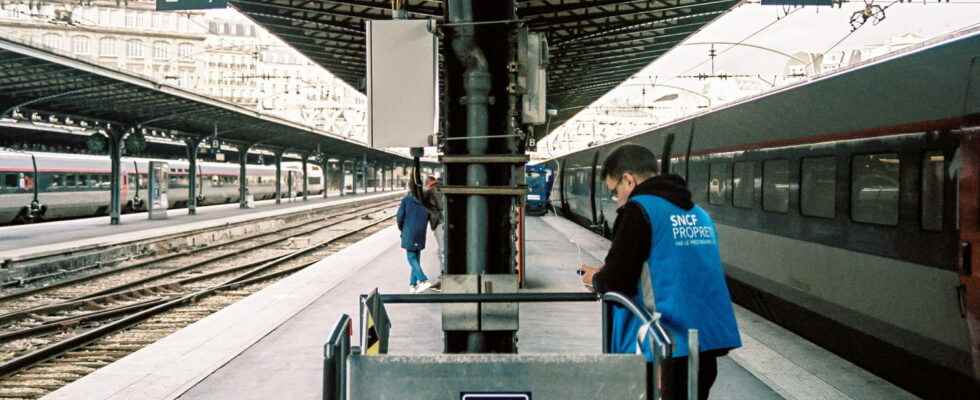It’s the end of an era: the SNCF will remove from its stations the famous yellow terminals used to compost the cardboard tickets, by betting everything on dematerialized solutions. A forced march towards all-digital that will leave people behind…
Some may remember with nostalgia the time when you had to stamp – validate – your train ticket at the small orange and then yellow terminals in the station before getting into your car. A compulsory and quite delicate operation since you had to make your way through the crowd and find the meaning of the note to hear the “clack” which meant that the mission had been accomplished – obviously, it didn’t work the first time. Suffice to say that it could be quite stressful, especially when you were late and the train was leaving in a few minutes! Then, little by little, paper tickets to be punched were replaced by electronic tickets. But why talk about it in the past tense? Because, after removing many counters with humans, the SNCF will soon get rid of these relics : there will soon be no more terminals in the station!
SNCF: terminals too expensive to maintain and little used
There are more than 3,000 composting terminals in France, mainly on TER lines but, according to the SNCF, their high maintenance costs coupled with their decreasing usefulness no longer justify their maintenance.. “Depending on the line, 96 to 99% of tickets are now dematerialized. We have therefore decided to remove the composters from our stations, because the vast majority of our customers no longer have to punch their tickets“, she explains to BFM TV. In addition, according to the latest SNCF satisfaction survey of the UFC-Que Choisir, only 44% of users were satisfied with their working condition. It was enough for the company to push its modernization efforts further and stay the course on all-digital – in particular with its SNCF Connect application – in order to offer a “simpler and smoother passenger journey.“ That still remains to be seen, given the many bugs in its mobile applications that keep the anxiety of the checks going – did the application register the ticket correctly? Will it work despite the influx of travellers? Will the smartphone have enough battery for the trip? The tension remains palpable.
The SNCF did not give precise dates for the dismantling of the composting terminals. We know that it will be effective on the TER AURA lines (Auvergne-Rhône-Alpes) from 1er March 2023. For the rest of France, it starts now and will be progressive. However, some areas are currently not affected. This is the case for the Transilien journeys, the TER Sud Paca (Provence-Alpes-Côte d’Azur) and the TER Nouvelle-Aquitaine. To warn of the start of the operation, ticket machines and composters will be equipped with stickers warning of the changes to come on the lines concerned.
End of SNCF terminals: what solutions for those who do not have a mobile?
But if the majority of users no longer use composting terminals and prefer dematerialized tickets, a small percentage of them still resist digital technology. From now on, they will have to go to the skipper – on the platform or when boarding the train – and show him their ticket. But this situation should remain very rare given that it has been impossible to buy a TGV or Intercités card ticket since November 2021, apart from very specific offers. Similarly, stamping is no longer mandatory since January 1, 2022 since tickets are only valid for one day – compared to two months previously – and therefore the ticket check acts as stamping.
If we understand the SNCF’s desire to move more towards dematerialization and to follow the evolution of an increasingly digital society, we can wonder what these transformations will impose on users who are less comfortable with electronic tools. Starting with the elderly, not all of whom are comfortable with smartphones, applications and the Internet. Because, more generally, imposing digital technology without alternative for everyday actions, such as administrative procedures – income tax return, vehicle registration certificate, request for allowance, renewal of identity documents, etc. – or the purchase of transport tickets – scarcity of counters with humans, purchase of bus “tickets” by SMS – aggravates the digital divide in France, and not only among the oldest.
Without even talking about all these left behind – whose number will naturally end up being reduced… –, we have the right to wonder about the imposed use of a smartphone – and the package that goes with it –, especially in times of inflation when all prices go up. What about breakdowns, bugs, connection problems and other hazards related to the use of electronic devices and solutions, and all related online services? The smartphone and its congeners will soon be mandatory to live, to simply be a citizen and user, and not just a consumer? It would be time to question this forced market…
